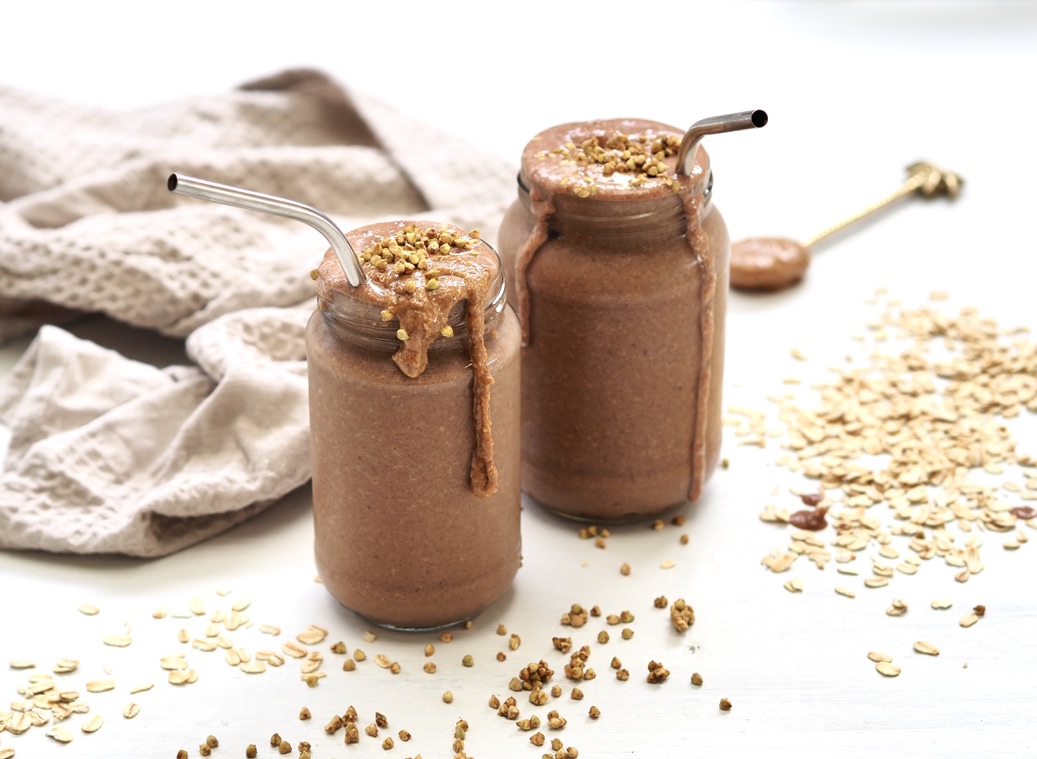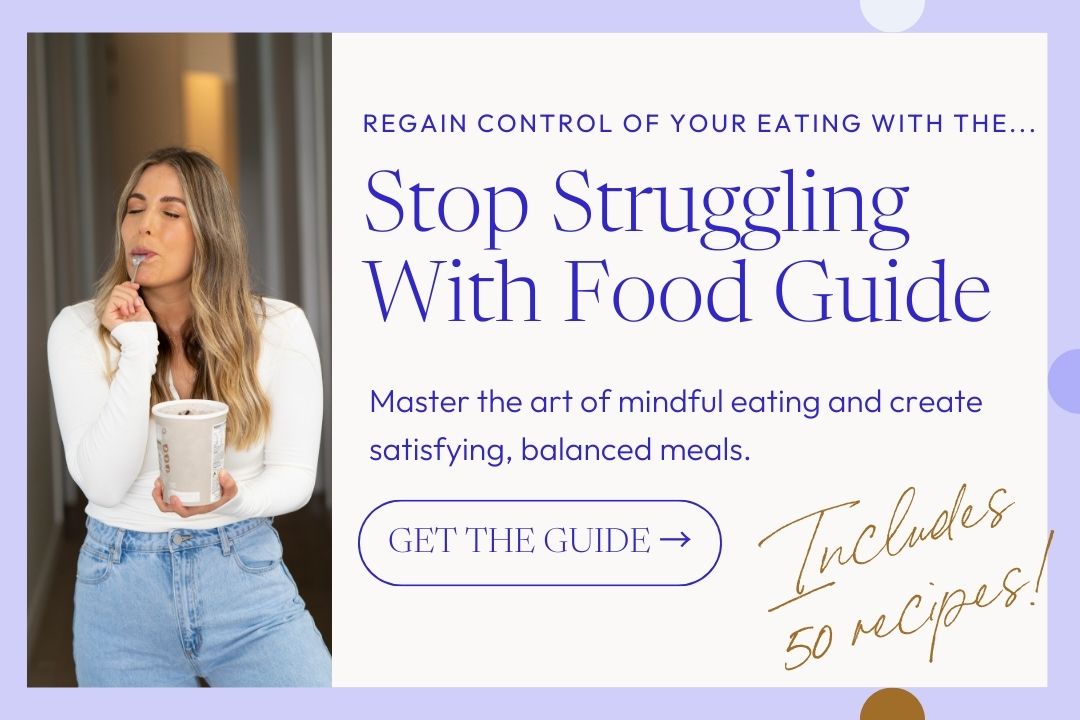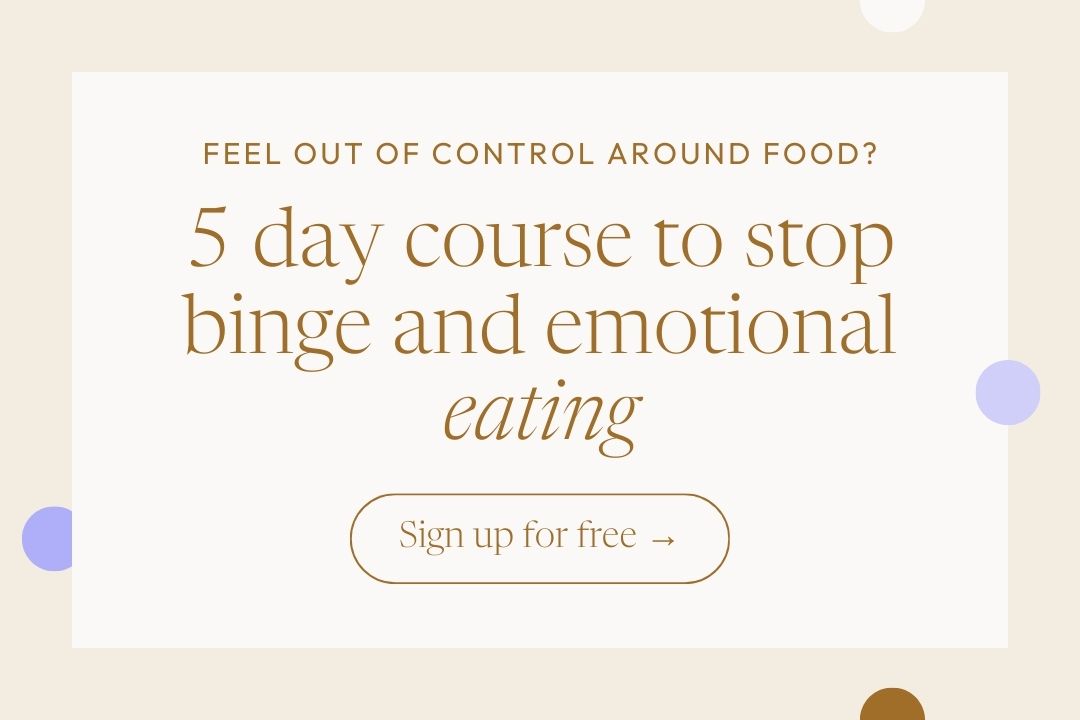In a world obsessed with dieting, “diet foods” seem pretty damn irresistible. We’re bombarded with conflicting advice about what you should be eating. Yet the so-called “healthy” options often conceal a not-so healthy reality.
In this blog, we’ll explore how typical diet foods can actually trick you into eating more. Not only making your weight loss efforts so much harder, but also sabotaging your health.
Food labeled as ‘low-calorie’ is a healthier choice, right?
That’s what most people think. But research shows this isn’t actually the case.
Back in 2011, there was a milkshake study conducted by a brilliant clinical psychologist, Alia Crum. Now I know what you might be thinking, WTF does a study about milkshakes have to do with this? Well, get ready to be amazed. Because this piece of research shows how the beliefs you have around food and why you’re eating, really matters.
In this double-blinded placebo trial, a batch of 380 calorie French vanilla milkshakes was split into two. One half, labeled the ‘sensible’ 140-calorie shake. The other, labeled a ‘indulgent’ 620-calorie shake. Same milkshake, different labels. Participants were given these shakes, and the study measured ghrelin, the hunger hormone.
First, let’s break down in simple terms what the deal with ghrelin is.
When you get hungry and your stomach starts to growl, that’s your ghrelin levels going up, telling your brain it’s time to eat. Now, when you eat and start feeling satisfied, your ghrelin levels should go down. At the same time, a hormone called leptin, which signals satisfaction, should go up. An important thing to know about ghrelin is it also regulates your metabolism. So if you have high levels of ghrelin, you feel hungry all the time.

Now here’s where things get interesting..
Participants who believed they were sipping on the indulgent 620-calorie shake had their hunger hormone (ghrelin) drop three times faster than those who thought they were drinking the low calorie ‘sensible’ shake. The drop was much quicker and had a more significant decrease in hunger signals.

So what does this tell us?
Low-calorie labels on diet foods can trick your mind and body. And what you believe about a food can change how your body reacts to it. This can increase your cravings and make your weight loss efforts by going for the low calorie options less effective.
And here’s the kicker- the satisfaction factor
The Milkshake Study is a perfect example of how you think about food really does matter. There’s the mental aspect that if something has more calories, it’s going to be more satisfying. Diet foods often fall short of this, leaving you physically full but emotionally unsatisfied.
Ever had those diet jellies and mousses? How many could you eat in one sitting?
These diet snacks don’t quite fill you up, leaving you craving more. It’s a common pitfall you’ve probably stumbled into- thinking you’re doing yourself a favor with low-calorie options. In reality, it can set you up for an unsatisfying binge.
This is where it’s so common to get stuck in a never-ending snack loop that can rack up more calories than if you were to have a balanced meal.
So, what the heck should you do?!
Outsmart the diet food. And instead of always choosing the lowest calorie options, eat what you actually enjoy and find most satisfying. Physiologically, you’re going to have a better response to it.
In a world where dieting often leads to confusion, remember that your body knows best. Listen to it, and allow it to guide your choices. Your relationship with food matters more than any label, and when you find satisfaction in your meals, your body will respond with positive changes.
Remember, there’s no one-size-fits-all approach to nutrition. Your body is unique, and what works for one person may not work for another.

If you want more guidance with healthy eating – check out Back to Basics. It will help you take the guesswork out of planning, shopping and cooking to help make your life easier. PLUS you’ll find a whole bunch of non-diet healthy (and freakin’ delicious) recipes and fun workouts to help you build healthy habits, that actually stick. Try it 7 days FREE!